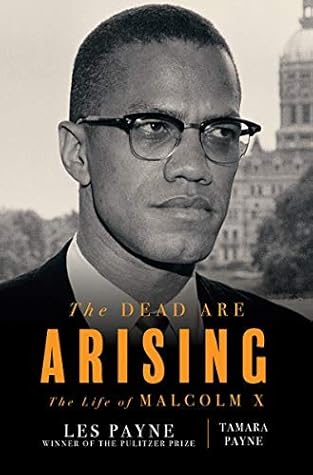More on this book
Community
Kindle Notes & Highlights
Point by point, he outlined how state-sanctioned racism is not new, but a continuation of the coordinated destruction of black people in America.
But what does ‘Negro’ mean except ‘black’ in Spanish? So what you are saying is: ‘It’s OK to call me ‘black’ in Spanish, but don’t call me black in English.”1
Later, in “The Night I Stopped Being a Negro,” an essay that was first published in a collection titled When Race Becomes Real, Payne wrote that he had entered “Bushnell Hall as a Negro with a capital ‘N’ and wandered out into the parking lot—as a black man.”2
poisoned weed of black self-loathing with its deeply entangled roots in the psyche.3
More than any other leader of the 1960’s, Malcolm moved blacks to consider who they were and whence they came, and to plan for what they could become.
To correct this condition, the black man could either work on the outer manifestations of discrimination—as did Martin Luther King—or change himself from within, through transformation. Malcolm took the latter course, both in teaching and in his personal life on this planet. He underwent a dramatic conversion, from street criminal to devoted moralist and revolutionary.
King offered racists the other cheek, Malcolm the back of his hand.
“We have to change our minds about each other,” Malcolm said often to his followers.
Plessy v. Ferguson decision of 1896.
“servile”
Great Migration, in which some half a million blacks moved from the South to Northern and Midwestern cities, racial violence went full throttle.
Versailles Treaty, which officially concluded the war with Germany, a race riot led by U.S. sailors erupted in Charleston, South Carolina; during this melee on May 10, 1919, three Negroes were killed, with injuries on both sides. In Chicago that July, a weeklong explosion flared at a segregated beach, with thirty-eight deaths, some fifteen of them whites, as Negroes fought back.
Bolsheviks,
“The American negro returning from abroad would be our greatest medium for conveying bolshevism to America,” President Woodrow Wilson reportedly told his personal physician, Dr. Cary Grayson. “The French people have placed the negro soldier in France on an equality with the white man,” Grayson wrote in his diary, adding that President Wilson stated, “And it has gone to their heads.” 21
The racial horrors of the Red Summer—played out in cities from Tuscaloosa, Alabama, to New London, Connecticut, and across to Texarkana, Texas—were so well rehearsed that the innocent Will Brown had already been convicted of a capital crime against white womanhood by the Omaha press.
The Omaha police later verified that the kingpin of the local Irish crime syndicate, one Tom “Pick-Handle” Dennison, had in several other instances paid whites in blackface to attack white women, not unlike Agnes Loebeck, in order to embarrass Mayor Smith and city hall. And a subsequent grand jury report stated: “Several reported assaults [reported in the Omaha Bee] on white women had actually been perpetrated by whites in blackface.” 39
Chief among these offenses was the daily violation of the Equal Protection Clause of the Fourteenth Amendment, among other broken contracts with citizens not deemed “free white males.”
1866 Civil Rights Act.
Hayes-Tilden Compromise of 1877,


